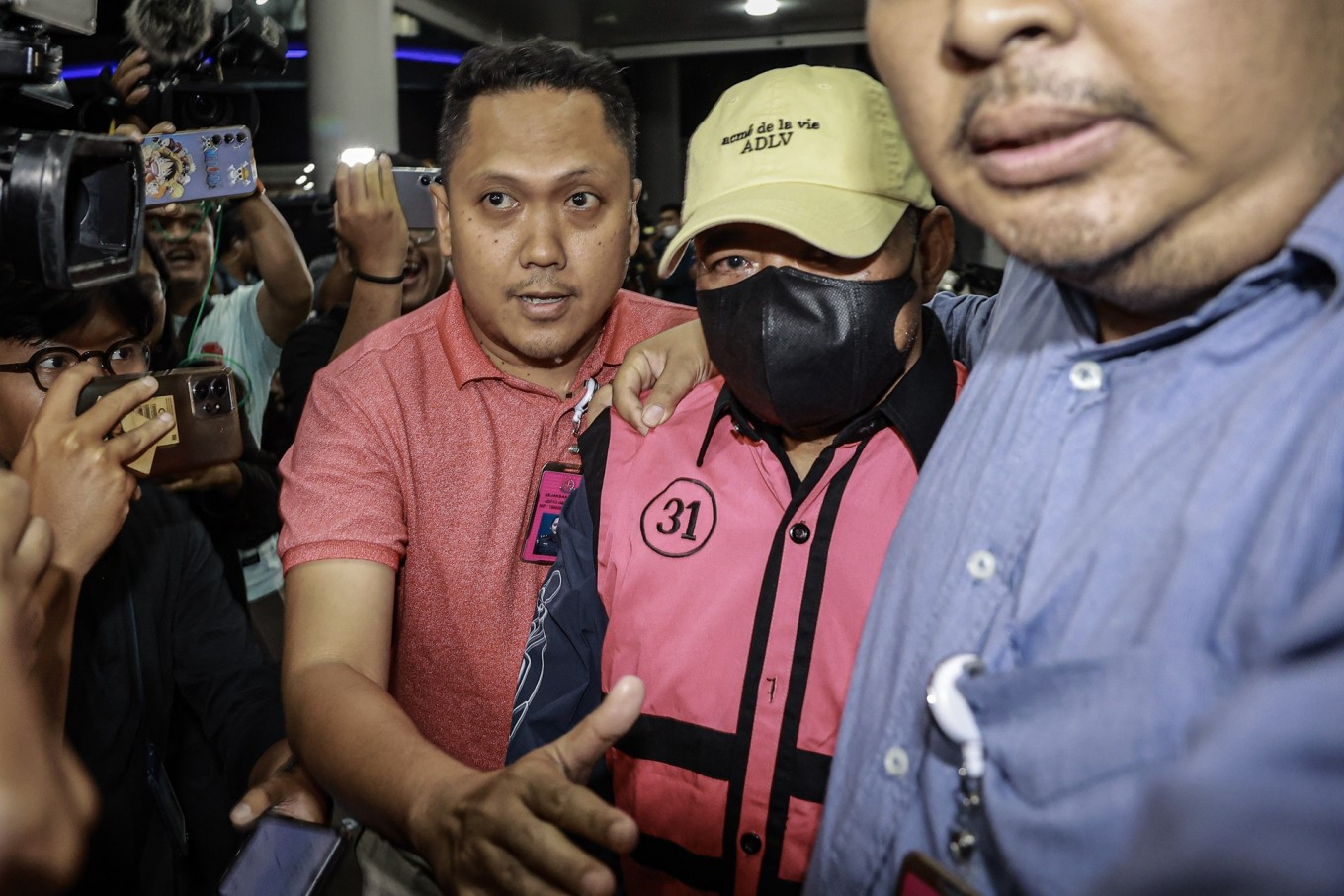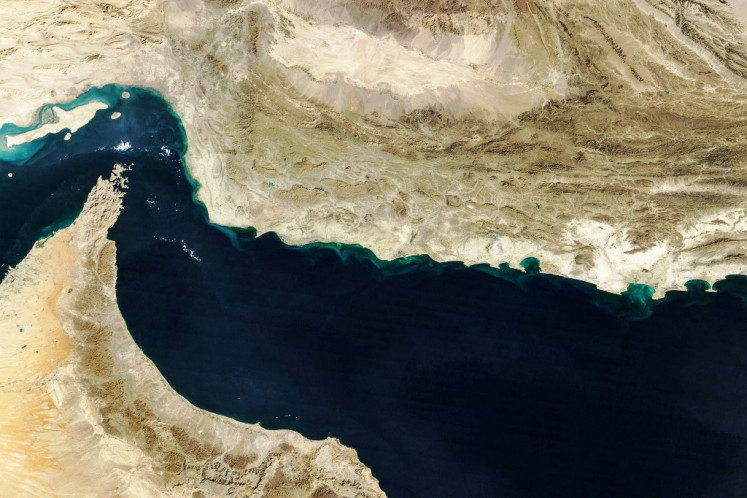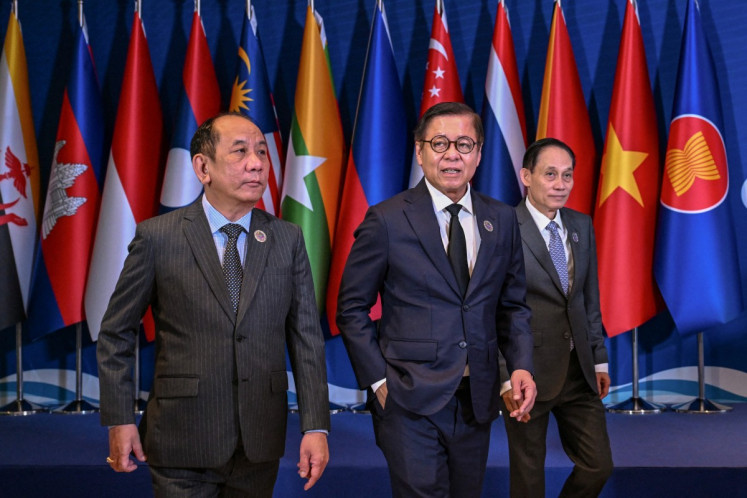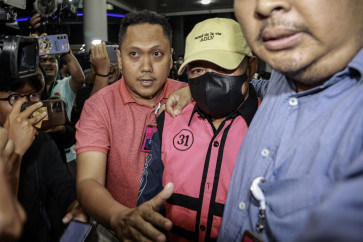Popular Reads
Top Results
Can't find what you're looking for?
View all search resultsPopular Reads
Top Results
Can't find what you're looking for?
View all search resultsAnalysis: District judge’s arrest for graft revives old political drama
Change text size
Gift Premium Articles
to Anyone
 Attorney General's Office (AGO) investigators escort former Central Jakarta District Court judge Djuyamto (center) after an interrogation session at the AGO's headquarters in Jakarta on April 14, 2025. The AGO named four judges suspects in a bribery case pertaining to the acquittal of three palm oil companies in another corruption case relating to crude palm oil exports. (Antara/Dhemas Reviyanto) (Antara/Dhemas Reviyanto)
Attorney General's Office (AGO) investigators escort former Central Jakarta District Court judge Djuyamto (center) after an interrogation session at the AGO's headquarters in Jakarta on April 14, 2025. The AGO named four judges suspects in a bribery case pertaining to the acquittal of three palm oil companies in another corruption case relating to crude palm oil exports. (Antara/Dhemas Reviyanto) (Antara/Dhemas Reviyanto)
T
he arrest of a Jakarta district judge has sparked public outcry and spotlighted the long-standing decay of institutional trust in the judiciary. On April 11, the Attorney General’s Office (AGO) apprehended South Jakarta District Court head Muhammad Arif Nuryanta on allegations that he had accepted Rp 60 billion (US$3.5 million) in bribes in exchange for a favorable ruling for three defendants in the 2022 graft case related to crude palm oil (CPO) export permits.
The defendants in the case are three major CPO players, Wilmar Group, Musim Mas Group, and Permata Hijau Group, which have been accused of prioritizing exports over domestic distribution that resulted in domestic supply shortages and up to Rp 20 trillion in state losses.
Along with Arif, three Jakarta Corruption Court judges and two corporate lawyers were arrested for their alleged roles in the elaborate bribery scheme.
The corruption court judges handed down a guilty verdict to the three defendants in a March 19 hearing but concluded that their actions did not constitute criminal offenses, citing a colonial-era legal provision known as Ontslag van alle Rechtsvervolging, which allows for the release of all legal charges without further prosecution when an act, though proven, is deemed noncriminal. The judicial panel ruled that the defendants were merely abiding by the country’s trade regulations at the time, even though these regulations had been proven to be the product of corruption in a prior trial.
With corruption scandals now seeming to appear with unsettling regularity, the AGO has maintained a consistent presence in the pursuit of legal accountability. Aside from the 2022 CPO bribery scandal, its prosecutors have been active in urging law enforcement to continue their investigations into the graft case pertaining to the 30-kilometer-long sea barrier erected illegally in Tangerang, Banten, which could implicate bigger names in addition to the four low-level suspects named thus far.
The resurgence of the CPO bribery case is another crucial test for the AGO and its willingness to go beyond corrupt judges to pursue those individuals responsible for granting the controversial export permits in the first place. After all, acquittals only come once the damage has been done.
Most notable among the case’s high-profile suspects is Coordinating Economic Minister Airlangga Hartarto, who is alleged of aiding and abetting in the provision of export permits to the three CPO companies, along with then-trade minister Muhammad Lutfi. Airlangga and Lutfi have both faced the music several times, but the AGO has never declared them suspects. The investigation into the scandal concluded after the sentencing of Indrasari Wisnu Wardhana, who was then the Trade Ministry’s foreign trade director general.


















